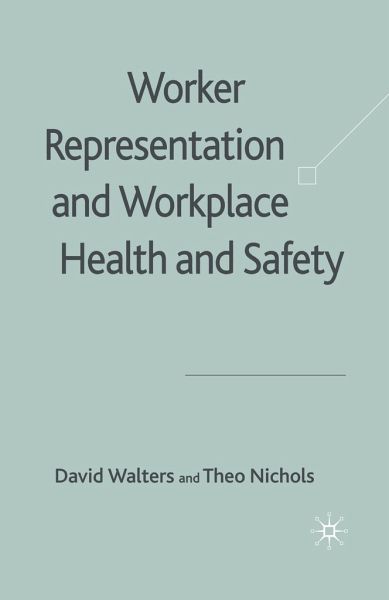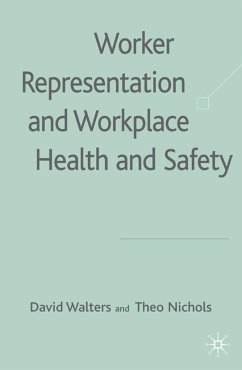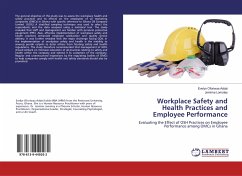
Worker Representation and Workplace Health and Safety
Versandkostenfrei!
Versandfertig in 6-10 Tagen
76,99 €
inkl. MwSt.
Weitere Ausgaben:

PAYBACK Punkte
38 °P sammeln!
This book considers worker representation on health and safety at work. Using international and UK case studies and materials, it examines how existing arrangements deliver results, interrogating the dominant regulatory model. This book is vital for those interested in industrial relations, health and safety, and worker representation.














